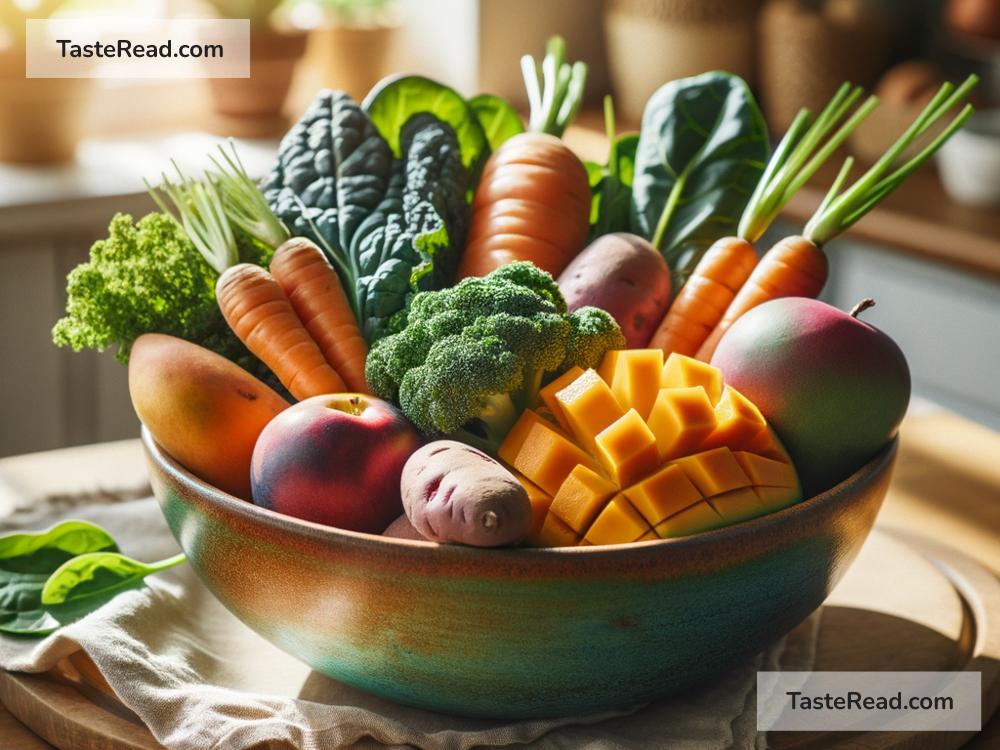Understanding the Role of Dietary Carotenoids in Health
When it comes to nutrition, there is no shortage of vitamins, minerals, and compounds that benefit our health. One group of nutrients that experts talk about are carotenoids. While their name might sound complicated, they’re actually pretty straightforward. Carotenoids are natural pigments found in plants, fruits, and vegetables. They play an important role not only in giving foods their bright colors but also in supporting health in the human body. This article will explain what carotenoids are, why they’re important, and how we can get more of them into our diets.
What Are Carotenoids?
Carotenoids are plant pigments that give fruits and vegetables their vibrant colors. Think of the orange in carrots, the red in tomatoes, or the yellow in bell peppers — these colors come from carotenoids. Scientists have identified over 600 different carotenoids, but only a few are commonly consumed and beneficial for humans. The most well-known carotenoids include beta-carotene, lutein, zeaxanthin, and lycopene.
Carotenoids are classified as antioxidants, which means they help protect cells in the body from damage caused by harmful molecules called free radicals. Over time, free radical damage can lead to aging, inflammation, and chronic diseases like heart disease, diabetes, or even cancer. This is why antioxidants, like carotenoids, are so important for maintaining good health.
How Carotenoids Benefit the Body
Carotenoids have many roles in keeping the body healthy, and their benefits extend to several parts of the body. Let’s break this down into manageable categories:
1. Eye Health
One of the most studied benefits of carotenoids is their impact on eye health. Lutein and zeaxanthin, in particular, are known for protecting the eyes. These carotenoids are found in the retina, the part of the eye that senses light. They act as a natural filter that shields the eyes from harmful blue light, which can contribute to eye strain and damage over time. Studies suggest that consuming enough lutein and zeaxanthin may lower the risk of age-related eye diseases like macular degeneration and cataracts.
2. Immune System Support
Carotenoids, like beta-carotene, help boost the immune system. Beta-carotene is converted into vitamin A in the body, which is essential for a healthy immune function. Vitamin A helps keep the skin, lining of the respiratory system, and digestive tract strong and resilient against infections. Beta-carotene also supports white blood cells, which fight off illnesses and infections.
3. Skin Health
Carotenoids also contribute to radiant skin. By protecting the skin from UV damage and improving hydration, carotenoids help reduce signs of aging, like wrinkles and loss of elasticity. In particular, beta-carotene and lycopene can act as a natural sunscreen by reducing the skin’s sensitivity to sunlight. This means that they help protect the skin from harmful ultraviolet (UV) rays while also promoting healing.
4. Heart Health
Lycopene, the carotenoid that gives tomatoes their red color, may help maintain heart health. Studies suggest that lycopene reduces cholesterol levels and decreases inflammation, both of which are key factors in preventing heart disease. Additionally, carotenoids as a group have been shown to improve blood vessel function, which lowers the risk of high blood pressure and stroke.
5. Cancer Prevention
While more research is needed in this area, carotenoids are being studied for their role in reducing cancer risk. Their antioxidant properties work to counteract oxidative stress, which can lead to DNA damage and cell mutations. Some researchers believe that diets rich in carotenoids can lower the risk of certain cancers, such as lung, prostate, and skin cancers.
Best Sources of Carotenoids
The good news is that carotenoids are easy to add to your diet because they’re found in many common fruits and vegetables. Here are some of the best sources:
- Beta-carotene: Carrots, sweet potatoes, pumpkins, spinach
- Lutein and Zeaxanthin: Kale, spinach, broccoli, zucchini
- Lycopene: Tomatoes, watermelon, pink grapefruit
- Other carotenoids: Bell peppers, mangoes, oranges, papayas
Whenever possible, eat a variety of colorful fruits and vegetables to get a mix of carotenoids. Keep in mind that carotenoids are better absorbed by the body when consumed with healthy fats, like olive oil, nuts, or avocado. For example, adding a drizzle of olive oil to roasted vegetables or blending spinach into a smoothie with almond butter can maximize the benefits.
Tips to Boost Your Carotenoid Intake
If you’re looking to add more carotenoids to your meals, here are some simple ideas:
- Snack on carrot sticks or bell pepper slices with hummus.
- Make a smoothie with spinach, mango, and bits of orange.
- Add tomatoes or tomato sauce to pasta dishes.
- Roast sweet potatoes or squash as a side dish.
- Make a colorful salad with kale, tomatoes, and shredded carrots.
Conclusion
Carotenoids are powerful nutrients that contribute wide-ranging benefits to human health. By eating a diet rich in colorful fruits and vegetables, you can take advantage of their antioxidant, anti-inflammatory, and disease-fighting properties. Whether you want to protect your eyes, boost your immune system, or improve your skin, carotenoids can help you do it all. Best of all, they’re easy to find and delicious to eat. So next time you’re at the grocery store, pick up some colorful produce and let carotenoids work their magic for your health.


